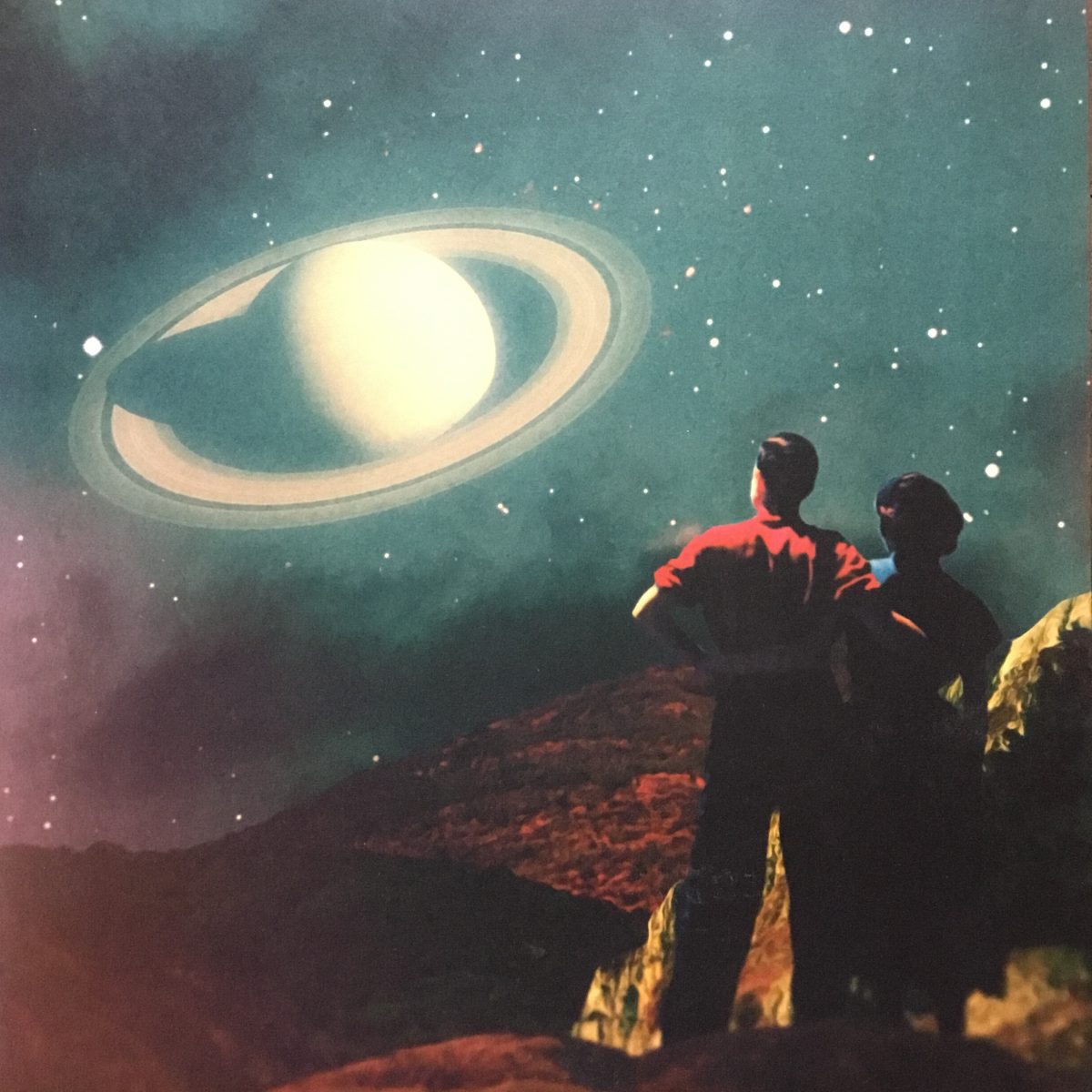Instrumental albums are rare in this day and age, outside of the jazz and classical worlds, yet this year has already witnessed the release of two such works. The debut by all star trio MEM_MODS has been well covered in these pages, but another lyric-less album dropped around the same time — or at least the vinyl version did. This week, the album will be stream-able for the first time.
The album is credited to Salo Pallini, but don’t go searching the ranks of Memphis musicians for that name. It’s a band that includes Landon Moore, John Whittemore, Pat Fusco, and Danny Banks, with ace percussionist Felix Hernandez pitching in — and it’s a band energized with the spirit of musical adventure.
In 2021, the band recorded 11 songs meant to serve as a musical accompaniment for Kurt Vonnegut’s 1959 novel, The Sirens of Titan. And this January that album, titled The Sirens of Titan: A Preemptive Scoring, was released as a beautiful LP. Ostensibly a wannabe soundtrack to Dan Harmon’s proposed adaptation of the novel, the album can nonetheless be enjoyed without knowing the novel or any of its permutations. And in any case, the real point of the album is to pioneer a new hybrid genre, what the band calls Progressive Latin Space Country.
In fact, it might be more accurately dubbed Progressive Latin Space Rock, for there’s always an undercurrent of classic FM sounds behind much of the composition. Indeed, that keeps the momentum up through this collection; one never knows when the coiled snake of rock will rise up and seize the reins of any particular track.
The most obvious case in point is the album’s single, “Kazak’s Bossa,” released as a video last December. It begins as if sauntering through a smoky party, it’s organ and keyboard textures weaving a spell over some very button-down jazz guitar melodies and fills. Then come the cavemen and gunshots roaring “Huh!” in the background. As with many of the tracks, it features a superb keyboard solo by Fusco (in this case on organ). After a breakdown, the congas of suspense announce a change, and suddenly we’re in rock riff land.
It’s pro-level genre-hopping not seen since the glorious ’70s heyday of Queen and Paul McCartney (or Snowglobe). And it captures in a nutshell what’s most fun about this album: its gonzo spirit.
The multi-genre song cycle isn’t the only thing about this project that evokes the ’70s. In “Malachi,” a languid rock-jazz groove not unlike Dark Side of the Moon builds into something from a ’70s action film. Later, there might be a touch of the ’90s: “Beatrice” could almost be a Built to Spill tribute, but then settles into something more like Mott the Hoople.
As the tunes roll by, we hear well-crafted unison guitar lines, or zithers, over driving conga rock, not to mention insane piano solos, angelic sopranos, treacly Moog melodies, bells, whistles, and ambient soundscapes.
Another highlight is “Goofballs,” which delivers the most genuinely Latin groove via Fusco’s deft keys, Moore’s under-groove, and Banks’ driving beat, with some zany guitar to boot. Then it loops into an entirely different rhythm and becomes a chugging rock ballad of sorts.
Salo Pallini’s strength is to always keep you guessing. Even if you know that “Malachi” and “Salo” are from the Vonnegut novel, you’ll nevertheless have fun guessing how to apply the various moods of this album to The Sirens of Titan. And if you’ve never heard of Kurt Vonnegut, this album will still keep you on your toes.
Salo Pallini celebrates the streaming release of The Sirens of Titan: A Preemptive Scoring at Young Avenue Deli this Friday, March 24th, 9 p.m., with Steve Selvidge on guitar and Pee Wee Jackson on drums.


 Roberto Hawkins
Roberto Hawkins 